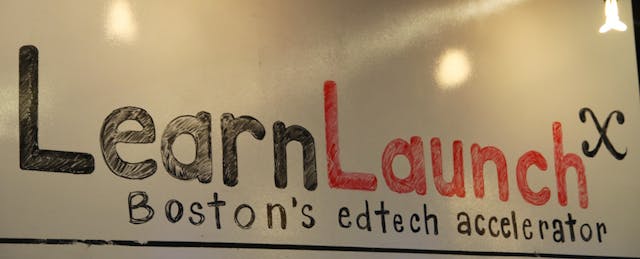The early stages of a startup are always fresh and exciting. Ideas flourish and expectations rise in world of limitless possibilities. Yet the early days are also filled with uncertainty--resources, funding, bringing in the right people, commercialization...
The temptation to join an accelerator can be strong as it provides not only acknowledgment, but stability in an uncertain future. I've written this piece to share with you my insights in being part of an edtech accelerator. Hopefully, this will help the undecided make their mind up over whether to join an accelerator or not.
Choose the right accelerator for your business
All startups are different and every company is at a different stage with their business when joining an accelerator. We were part of Nest'UP, the first "Techstars-like" Belgian accelerator, for three months last year and it was a great platform to start our business. The network, mentors and coaches provided us with a springboard to get a business up and running. No stones were left unturned, from the UI/UX of the website to precious advice on commercialization.
Despite securing some pilots in The Netherlands and in the UK, we soon realized we would be better off coming to the United States where there is a greater penetration of technology in classrooms. We needed an extra boost and a bigger market in order to accelerate our educational platform so we looked around the web. A few edtech accelerators stood out: Imagine K-12, 4pt0 and LearnLaunchX. We decided to go for LearnLaunchX as Boston would be a perfect location for us to build a company centered around history and social studies. Known as the "edtech capital of the world", the city can proudly boast being home to Harvard and MIT, two of the world's best universities.
Since our time at LearnLaunchX, a couple of edtech accelerators have popped up in Europe of which I have heard good things: Emerge based in London and the Open Education Challenge, which is supported in part by the European Commission.
Due diligence
There are lots of articles across the web talking about accelerators and the merits (or not) of joining one and if it's right for your business. As a startup founder, it's a tough decision to make as you'll be giving away part of your business in what you hope will be a successful partnership.
One key takeaway is that you must do your due diligence on the accelerator and the founding partners before accepting an offer to join one. In the early days of Hstry, we had an offer to join a non-education accelerator/incubator in London (UK) which seemed great at first and had a wonderful list of mentors but the minute we received the term sheet for investment, our minds were blown away. It was 34 pages long and had so many disturbing clauses it was simply not worth the hassle to even contemplate negotiating (and do remember that everything is negotiable with every accelerator). Make sure you get some external advice before signing anything.
What to expect from an accelerator
This is where it can become tricky for entrepreneurs. One thing I would recommend is really pushing the boundaries of the network on offer by the accelerator. We were fortunate that LearnLaunchX has a terrific set of mentors. As we moved to Boston without knowing anyone, we went through something called 'Mentor Madness' where we were fortunate enough to meet forty-odd experts who wanted to help us and our business. This helped us greatly as we had entrepreneurs that had experience in education technology, investors and educators who were willing to spend time in supporting Hstry and the platform we were building.
The classes on offer at LearnLaunchX varied. We liked in particular the classes where our own previous knowledge had been limited. Some of the weekly classes, ranging from managing an education company to legal help with privacy and being COPPA compliant, were interesting and useful. We also received help in understanding the US education market where we were given a run-down of the decision-makers and the divide between States.
On top of this, the office space in the Back Bay area of Boston was a real positive for us as we have been lucky enough to co-work alongside thirty-odd education technology companies.
Working towards Demo Day
The looming deadline of a Demo Day is a great incentive as a startup. It allows for your team to focus and have that goal in mind of releasing a product or getting some traction.
For our part, it pushed us to get our timeline creation tool up and running while building a network of teachers who would use the product. The last few weeks at the accelerator have focused heavily on our pitch deck and delivery. It was a bit overwhelming at first as experts had conflicting visions, but it helped in the long run in focusing the message we wanted to deliver. At the end of the day, how you present your product is just as important as the product itself. In that respect, I can only recommend any entrepreneur to have a team when joining an accelerator; the activities they propose are time consuming so it is essential to have people actually working on the product.
The journey to realizing your vision and to build a name is a long one. I can understand that for some joining an accelerator can prove to be a stumbling block, as it was for us a year ago. With hindsight however, I'm proud of the progress Hstry made during the accelerator period and I consider it an important stepping stone that boosted considerably our development. If you are at the 'idea' stage of your business and would like to take it to the next level, then I wholeheartedly recommend you sign up and get going.


